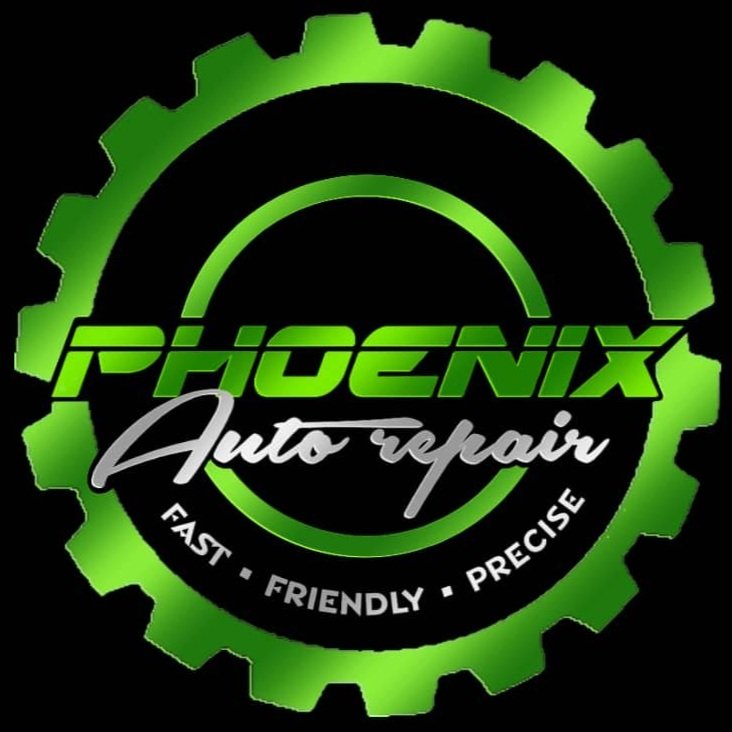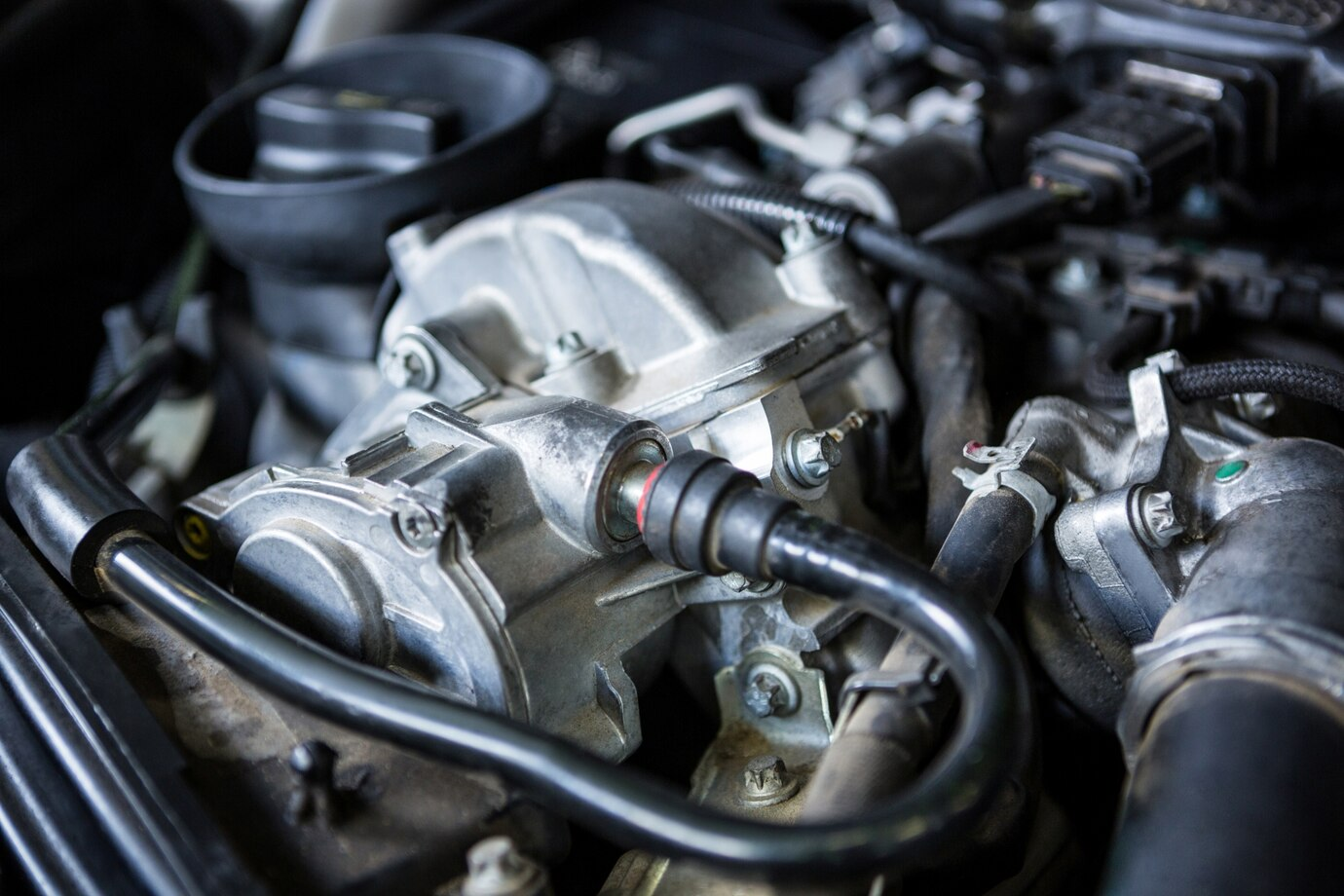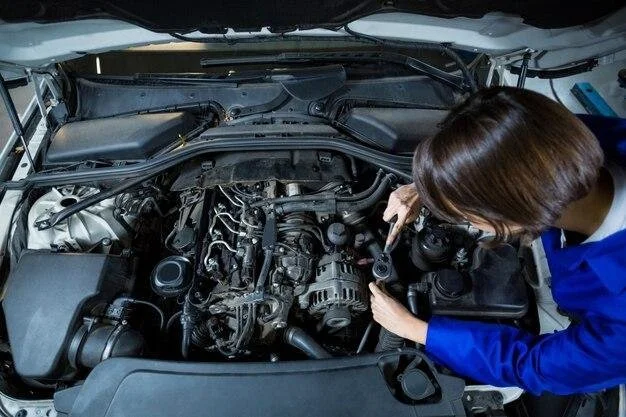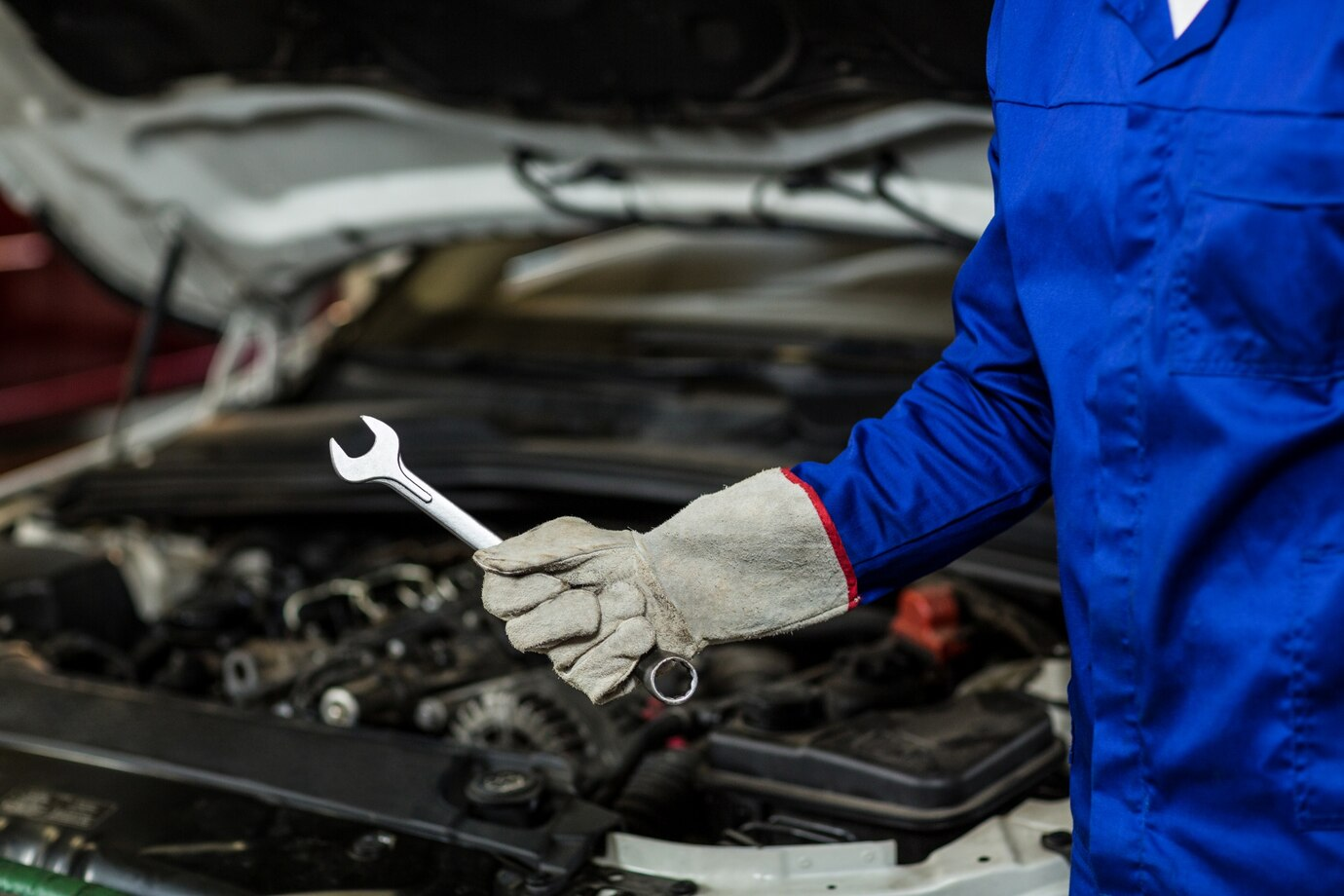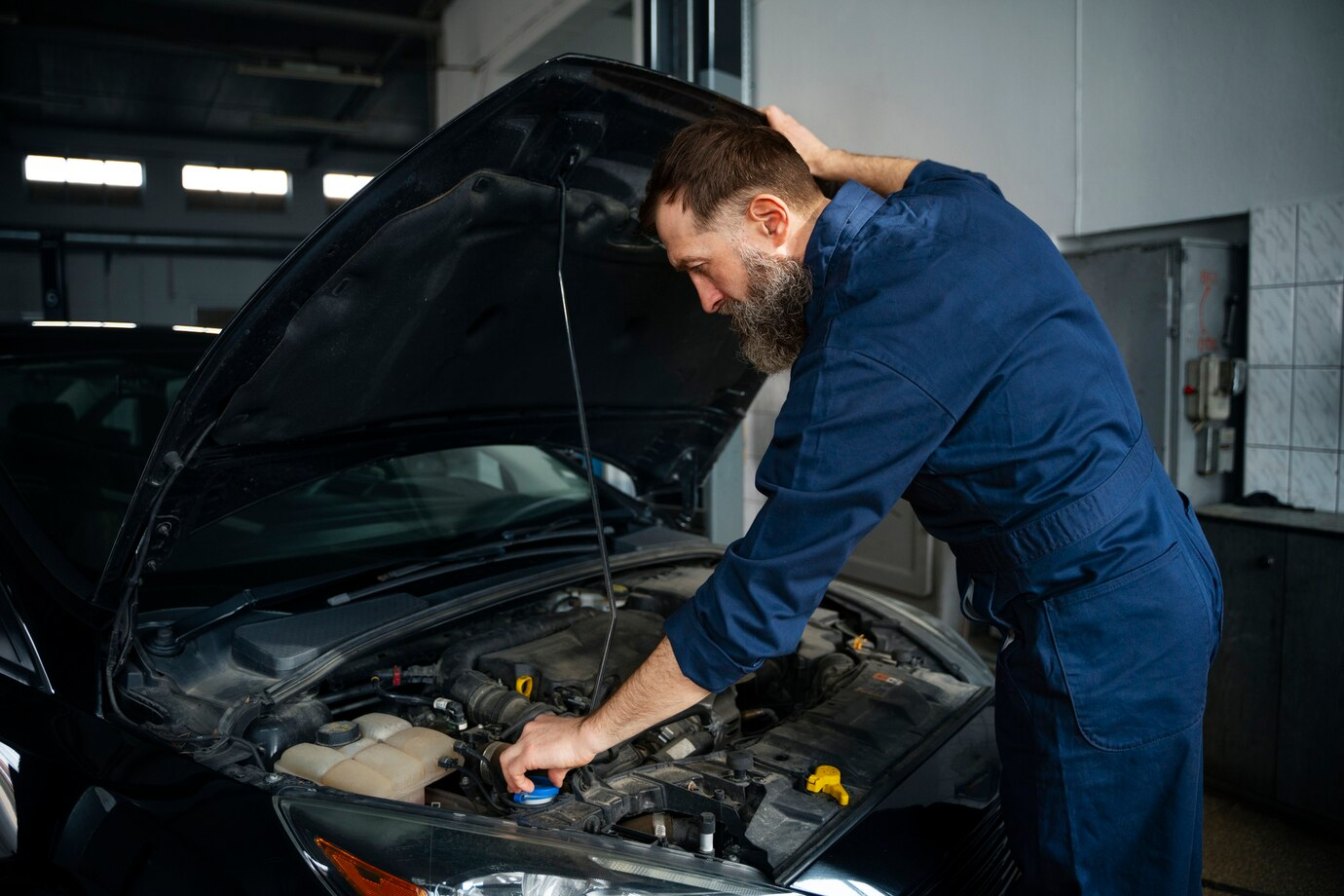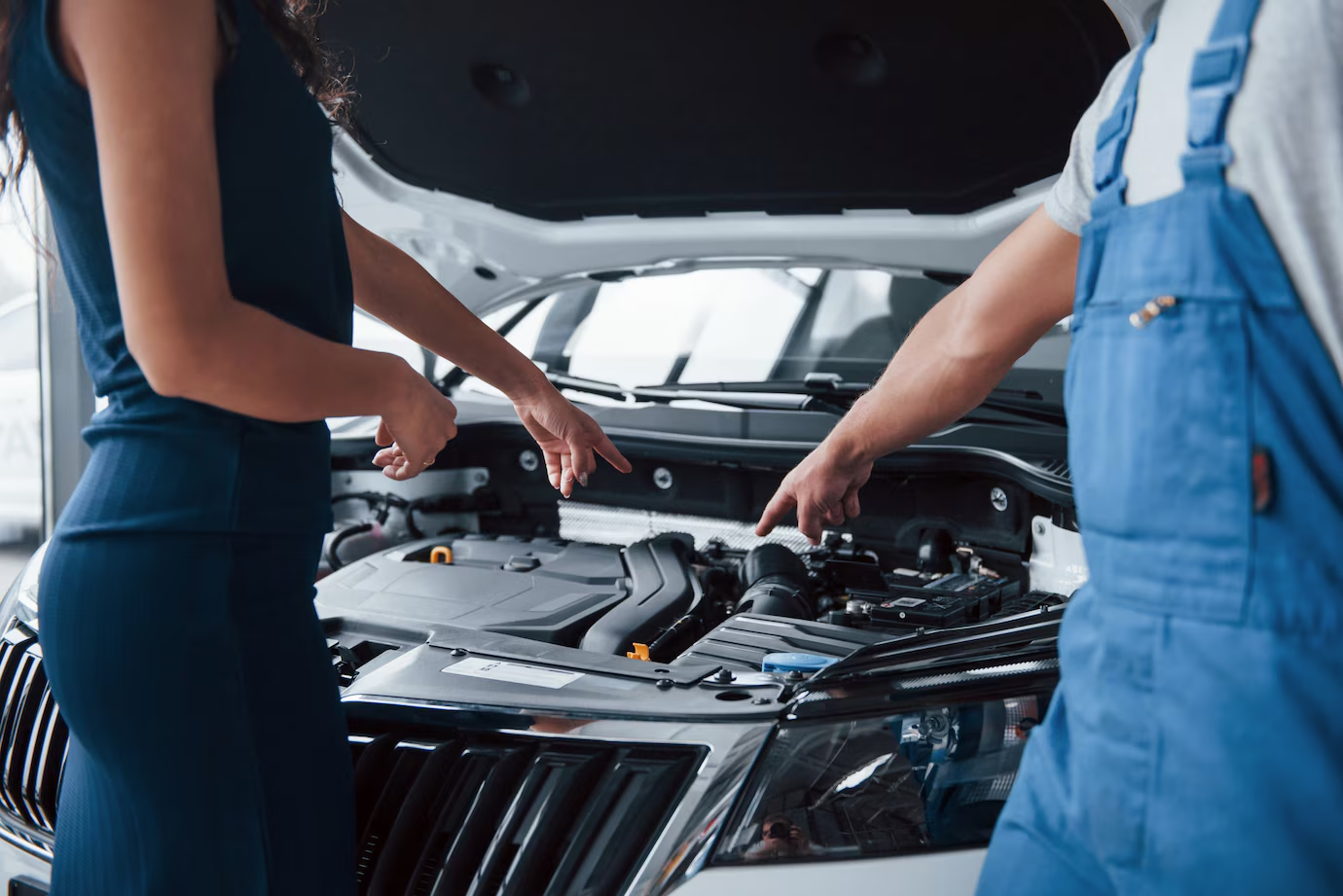Just as our bodies convert food into energy, a vehicle's engine transforms fuel into power. Internal combustion engines generate energy by burning a fuel-air mixture under pressure in the cylinder, converting it into movement through the pistons, connecting rods, and crankshaft.
Are you concerned about why your car isn't starting? When we turn the key or press the button to start our vehicle, we rely on a crucial yet often overlooked component: the engine starter. This small but mighty device is essential for initiating the engine’s operation, making it a pivotal part of our daily driving routine.
Let's discuss the complex details of the starter (engine), including its types and common issues, and learn how to maintain it for the best performance.
How Does a Starter (engine) Work?
The engine starter is an electromechanical device designed to rotate (crank) the engine to begin its internal combustion process. When you activate the ignition switch, an electrical current flows from the battery to the starter motor. This current energizes the solenoid, pushing a small pinion gear to engage with the engine's flywheel. The starter motor then spins the flywheel, allowing the engine to "catch" and begin running independently.
Key components of a starter include:
Solenoid: Acts as a bridge for electrical current and engages the pinion gear.
Pinion Gear: Engages with the engine's flywheel to turn over the engine.
Starter Motor: The actual motor that spins the pinion gear to crank the engine.
3 Different Types of Starter (engine)
Starters come in different forms, each suited to specific applications:
Electric Starters: The most common type found in most vehicles today. Powered by the vehicle's battery, these starters are efficient and effective for light-duty applications.
Pneumatic Starters: Used primarily in large engines, such as those in aircraft and heavy machinery, these starters use compressed air to initiate engine rotation.
Hydraulic Starters: These are used in applications requiring reliability under harsh conditions, such as in marine and industrial settings. They operate using hydraulic pressure to crank the engine.
Common Starter Problems and Diagnosis
While starters are generally reliable, they can encounter issues:
Clicking Noise: If you hear a clicking sound when trying to start your vehicle, it might indicate a weak battery or a faulty solenoid.
No Crank: When the engine doesn’t crank at all, it could be due to a dead battery, a bad starter motor, or electrical connection issues.
Grinding Noise: This often indicates that the pinion gear is not properly engaging with the flywheel, which could lead to damage if not addressed promptly.
Diagnosing starter issues often begins with a voltage test using a multimeter to ensure the battery is supplying adequate power. Inspecting the starter motor and connections for corrosion or wear can also help identify problems.
Maintenance and Care Tips
Maintaining your starter can prevent unexpected failures:
Regular Inspection and Cleaning: Periodically check the starter and its connections for signs of wear, corrosion, or dirt accumulation.
Battery Maintenance: The starter relies heavily on the vehicle’s battery. Ensure your battery terminals are clean and the battery is healthy.
Professional Servicing: Have your vehicle inspected by an experienced mechanic during regular service intervals. They can detect potential starter issues early on.
Replacing a Starter
Over time, even with optimal care, starters can fail and require replacement. Signs it's time to replace your starter include persistent starting problems despite a healthy battery, unusual noises, or physical wear and damage.
Replacing a starter involves several steps:
Disconnect the Battery: Start by disconnecting the negative terminal to avoid electrical accidents.
Remove the Old Starter: Locate the starter (consult your vehicle’s manual), unbolt it, and carefully disconnect the wires.
Install the New Starter: Connect the new starter's electrical terminals correctly, ensuring they are tight and secure.
Facing Engine Issues? Phoenix Auto Repair Can Fix It Fast!
Did you know that all functions of your car depend on its starter (engine)? If it isn't working properly, your vehicle won't move an inch. Phoenix Auto Repair is a highly-rated auto repair shop in Nashville that has been serving the community for over 20 years. We employ ASE-certified technicians who have the expertise to diagnose and repair a wide range of automotive issues, including starter problems.
Our technicians will thoroughly inspect the starter, battery, and electrical system to ensure a proper repair. Additionally, Phoenix Auto Repair offers a 24-month/24,000-mile warranty on all starter repairs, giving customers peace of mind and protection on their investment.
Discover our services and access them with just one call! Get the best services for a stress-free driving experience!
FAQs
How do I know if my starter is bad?
Following are the signs of a bad starter(engine):
Hearing whirring, grinding, or clicking noises when attempting to start your car.
A single loud click occurs when you try to start the vehicle, but the engine doesn't crank.
The instrument cluster, headlights, and radio function normally, but turning the key results in no response.
Who offers the best starter(engine) repair service in Nashville, TN?
You can get top-rated starters(engine) services from the following places in Nashville, TN:
2. West Power Services
3. Kwik Kar Lube and Tune
4. The Car Care Center
5. Specialized Truck Repair
Can a bad starter drain a battery?
Your battery already works hard to power all your car's electrical systems. A faulty starter can add extra strain, leaving it drained and struggling to function properly. If you suspect a bad starter is causing your battery to deplete constantly, have it inspected right away!
What damages car starters?
Here are the 7 common causes behind a damaged car starter that you must consider:
1. Loose cables
2. Oxidized batteries
3. Solenoid failures
4. Oil leakage
5. Damaged fuse or relay
6. Worn-out parts
7. Dusty motor
